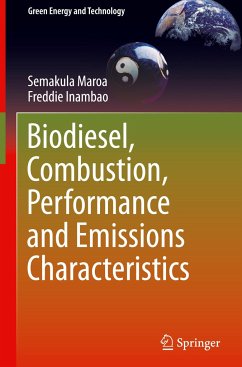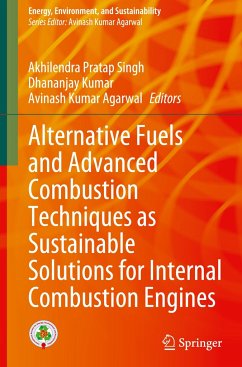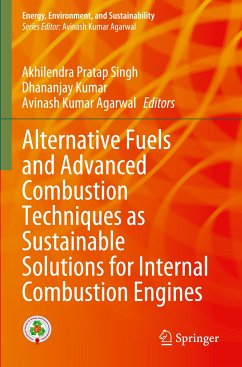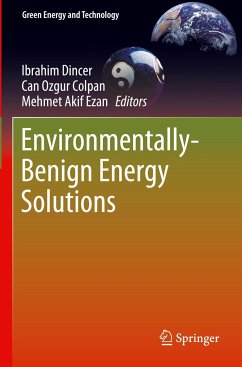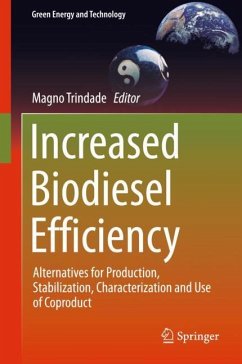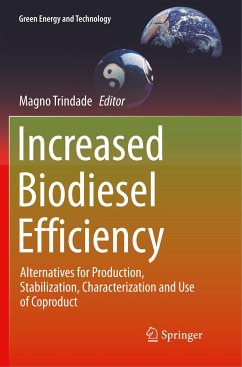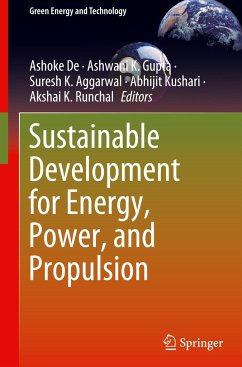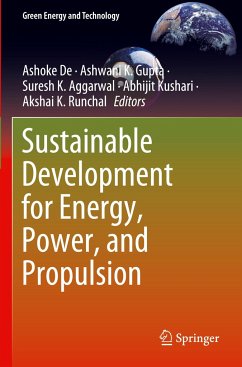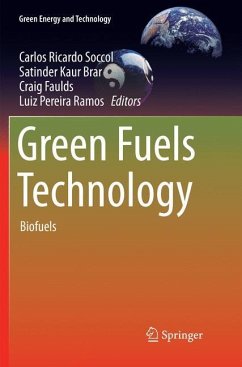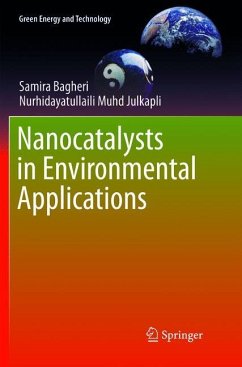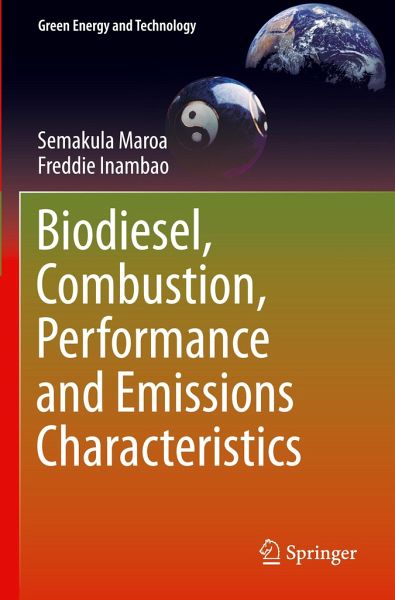
Biodiesel, Combustion, Performance and Emissions Characteristics
Versandkostenfrei!
Versandfertig in 6-10 Tagen
76,99 €
inkl. MwSt.
Weitere Ausgaben:

PAYBACK Punkte
38 °P sammeln!
This book focuses on biodiesel combustion, including biodiesel performance, emissions and control. It brings together a range of international research in combustion studies in order to offer a comprehensive resource for researchers, students and academics alike.The book begins with an introduction to biodiesel combustion, followed by a discussion of NOx formation routes. It then addresses biodiesel production processes and oil feedstocks in detail, discusses the physiochemical properties of biodiesel, and explores the benefits and drawbacks of these properties. Factors influencing the formati...
This book focuses on biodiesel combustion, including biodiesel performance, emissions and control. It brings together a range of international research in combustion studies in order to offer a comprehensive resource for researchers, students and academics alike.
The book begins with an introduction to biodiesel combustion, followed by a discussion of NOx formation routes. It then addresses biodiesel production processes and oil feedstocks in detail, discusses the physiochemical properties of biodiesel, and explores the benefits and drawbacks of these properties. Factors influencing the formation of emissions, including NOx emissions, are also dealt with thoroughly. Lastly, the book discusses the mechanisms of pollution and different approaches used to reduce pollutants in connection with biodiesel. Each approach is considered in detail, and diagrams are provided to illustrate the points in line with industry standard control mechanisms.
The book begins with an introduction to biodiesel combustion, followed by a discussion of NOx formation routes. It then addresses biodiesel production processes and oil feedstocks in detail, discusses the physiochemical properties of biodiesel, and explores the benefits and drawbacks of these properties. Factors influencing the formation of emissions, including NOx emissions, are also dealt with thoroughly. Lastly, the book discusses the mechanisms of pollution and different approaches used to reduce pollutants in connection with biodiesel. Each approach is considered in detail, and diagrams are provided to illustrate the points in line with industry standard control mechanisms.



